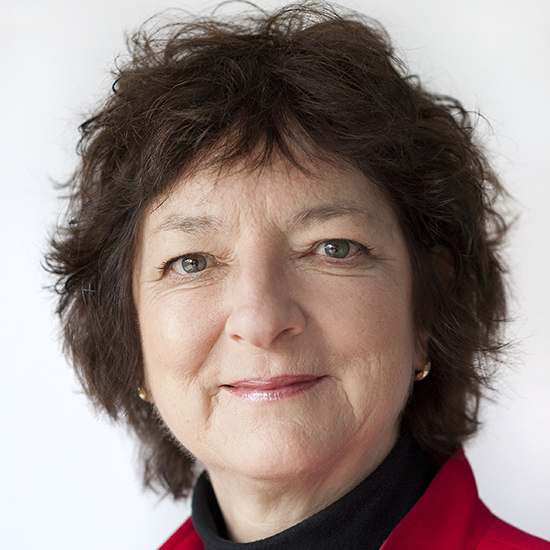Catherine Hankins
- Senior Fellow
- Assistant Professor, Department of Global Health, Amsterdam UMC, University of Amsterdam
- Honorary Professor, Faculty of Epidemiology and Population Health, London School of Hygiene and Tropical Medicine, United Kingdom
- Professor of Public and Population Health, Faculty of Medicine, McGill University, Canada
Dr. Catherine Hankins’ current scientific interests include COVID_19, novel biomedical HIV prevention, implementation science, and participatory research conduct. She is keenly interested in scientific capacity development and advancing women in global health and science. She is the AIGHD co-Principal Investigator for two CAPRISA trials of long-acting technologies for the prevention of HIV acquisition in young women. These are CAPRISA 012 – combination monoclonal antibodies (South Africa, Zambia) and CAPRISA 018 – sustained-release tenofovir alafenamide subdermal implant (South Africa). She was Scientific Chair and Organising Committee Chair for six of AIGHD’s annual INTEREST conferences on HIV treatment, pathogenesis, and prevention research in resource-limited settings (2015 Harare, 2016 Yaoundé, 2017 Lilongwe, 2018 Kigali, 2019 Accra, 2020 Windhoek (virtual). She is the Scientific Co-Chair of the Eastern Europe and Central Asia INTERACT Workshop (Almaty, 2019; virtual 2021).
In April 2020, she was appointed co-chair of Canada’s Covid-19 Immunity Task Force, which catalyses, supports, funds, and harmonizes research on SARS-CoV-2 immunity for decision-makers and is generating critical insights on levels, trends, nature, and duration of immunity arising from SARS-CoV-2 infection and COVID-19 vaccination. Since 2017 she has chaired the Scientific Advisory Committee of the European and Developing Countries Clinical Trials Partnership 2. In 2016 she led the development of Good Participatory Practice (GPP) Guidelines for trials of Emerging Pathogens for the World Health Organisation’s R&D Blueprint.
For a decade until coming to AIGHD, she was the Chief Scientific Adviser to UNAIDS in Geneva. She led the scientific knowledge translation team focused on ensuring ethical and participatory biomedical HIV prevention trial conduct, convening mathematical modelling teams, and supporting country implementation of proven biomedical HIV prevention modalities. She has participated in programme committees for numerous conferences. She was the Lead Rapporteur for Implementation Science at the International AIDS Society (IAS) 2017 conference in Paris, was Track D co-chair (Social and Political Research, Law, Policy, and Human Rights) for Amsterdam’s IAS 2018, and is a member of Track E Implementation Science for IAS 2022 (Montreal). Since 2008, she has been a member of the IAS Industry Liaison Forum, founded by Joep Lange.
Male circumcision cuts sexually transmitted infections and cervical cancer risk in women.
Morris B and Hankins C.
The Lancet Global Health 2017; 5 (11), pages e1054–e1055.
Scientific Developments from the 2016 INTEREST Conference, Yaoundé, Cameroon May 3-6, 2016.
Hankins C, Koulla-Shiro S, Kilmarx PH, Ferrari G, Schechter M, Toure Kane NC, Venter F, Boucher C, Zewdie D, Eholié S, Katabira E.
Antiviral Therapy 2017; 22:179-184. DOI 10.3851
Voluntary Medical Male Circumcision for HIV Prevention: New Mathematical Models for Strategic Demand Creation Prioritizing Subpopulations by Age and Geography.
Hankins C, Warren M, Njeuhmeli E.
PLoS One. 2016 Oct 26;11(10):e0160699. doi: 10.1371/journal.pone.0160699. PMID: 27783613
Translating PrEP effectiveness into public health impact: key considerations for decision-makers on cost-effectiveness, price, regulatory issues, distributive justice, and advocacy for access.
Hankins C, Macklin R, Warren M.
JIAS, July 2015, 18(Suppl 3):19973
The promise of pre-exposure prophylaxis with antiretroviral drugs to prevent HIV transmission: a review.
Hankins CA, Dybul MR.
Curr Opin HIV AIDS. 2013 Jan;8(1):50-8. PMID: 23201856

